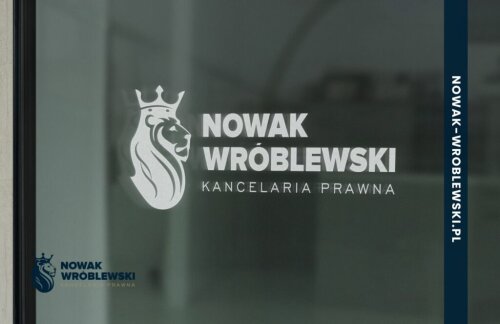Best Admiralty & Maritime Lawyers in Tarnobrzeg
Share your needs with us, get contacted by law firms.
Free. Takes 2 min.
List of the best lawyers in Tarnobrzeg, Poland
About Admiralty & Maritime Law in Tarnobrzeg, Poland
Admiralty and Maritime law in Tarnobrzeg deals with disputes and issues arising from navigation on Poland’s inland waterways and at sea. Local matters usually involve the Vistula river corridor or river ports nearby, cargo movements, salvage claims, and insurance or liability questions. The governing rules are national, and enforcement happens through Polish courts and administrative authorities like Wody Polskie. For residents of Tarnobrzeg, consulting a Polish lawyer with maritime experience helps interpret complex rules and coordinate with local agencies.
The core framework includes the Maritime Code and related inland waterway legislation, with official texts regularly updated. Practitioners in Tarnobrzeg use Polish legal terms such as adwokat or radca prawny when representing clients. Citations to official texts are available on Poland’s legal portals and government sites for the latest versions and amendments.
For the most current texts and amendments, consult the ISAP portal of the Sejm and official government resources. These sources provide the definitive versions of maritime and inland waterway laws as adopted by the Polish legislature.
Why You May Need a Lawyer
- Cargo damage on an inland shipment along the Vistula - A freight claim after a barge collision with a moored vessel requires proving fault, calculating liability, and pursuing insurance or a shipping per diem. A maritime lawyer can coordinate with insurers and the local court system in Tarnobrzeg.
- Salvage or salvage bounty disputes - If a vessel or its cargo is stranded near Tarnobrzeg, salvage claims must be properly filed under Polish law. An attorney can assess rights to salvage rewards and prepare the necessary applications.
- Maritime liens or arrest of a vessel - A lien on a vessel or a vessel arrest in connection with unpaid freight or damages must follow precise procedural steps under the Maritime Code. A solicitor (adwokat) or radca prawny can guide you through the process.
- Insurance disputes for inland waterway shipments - Insurance coverage gaps or denial of claims for river cargo require technical knowledge of maritime insurance, policy exclusions, and applicable Polish law.
- Disputes with local authorities over river usage or permits - Issues such as fishing permits, dredging, or access on the Vistula may require regulatory interpretations and procedural filings with Wody Polskie and other authorities.
- Contract drafting for river or coastal transport services - Charterparties, carrier agreements, and voyage records for inland vessels involve complex terms and potential liability questions that benefit from seasoned legal counsel.
Local Laws Overview
Key Polish statutes govern Admiralty & Maritime matters, including Tarnobrzeg area cases involving inland navigation and port activities. These laws are applied by Polish courts and administrative bodies across the country, with texts published and maintained online for accuracy and updates.
- Kodeks morski (Maritime Code) - The primary statute regulating maritime obligations, liability, salvage, and maritime liens. Official texts and updates are available on the ISAP portal. ISAP - Internetowy System Aktów Prawnych
- Ustawa o żegludze śródlądowej (Inland Waterways Transport Act) - Governs inland navigation, vessel operations, and related responsibilities on rivers such as the Vistula. Official texts and amendments are accessible via government sources and ISAP. ISAP
- Prawo wodne (Water Law) - Regulates water resource use, environmental protections, and related permits for river and coastal activities. Check the latest version on ISAP and government portals. ISAP
For practical guidance, Tarnobrzeg residents should refer to the official texts hosted on ISAP, and to guidance from national agencies such as Wody Polskie for inland water management and safety standards. See also the Ministry of Infrastructure pages for maritime and inland water transport policies. Ministry of Infrastructure - Transport
Frequently Asked Questions
What is the Maritime Code in Poland?
The Maritime Code is the main national law regulating maritime obligations, liabilities, salvage, and liens. It covers ships, cargo, and sea or inland waterway transactions.
How do I start a maritime claim in Tarnobrzeg?
Begin with a consultation with a Polish adwokat or radca prawny who specializes in maritime law. Gather contracts, insurance policies, incident reports, and vessel details to share at the first meeting.
When can a vessel be arrested in Poland?
A court may order vessel arrest to secure a maritime claim such as unpaid freight or compensations. This requires proper procedural steps and court filings in the relevant jurisdiction.
Where are inland waterway disputes heard in Tarnobrzeg?
Most inland waterway disputes are heard by the regional or district courts with jurisdiction over Tarnobrzeg, or by higher courts on appeal. Local practice may involve procedural steps coordinated with the registry of boats and river authorities.
Why should I hire a maritime lawyer in Tarnobrzeg?
Maritime law involves technical, procedural, and jurisdictional aspects that benefit from specialist advice. A local lawyer can coordinate with Tarnobrzeg’s authorities and courts for efficient handling.
Can I sue for cargo damage on inland shipments?
Yes. Claims for damage or loss of inland cargo can be pursued under the Maritime Code and relevant inland waterway acts, with evidence like invoices, bills of lading, and insurance policies.
Should I hire a solicitor or a barrister for maritime work?
Polish practice uses two main types of lawyers for litigation: adwokat and radca prawny. A maritime matter in Tarnobrzeg is typically handled by an adwokat or radca prawny with litigation experience.
Do I need to register my inland vessel in Poland?
Registration rules depend on vessel type and usage. A maritime lawyer can confirm registration requirements and assist with the process through the appropriate local or national authorities.
Is there a time limit for maritime claims?
Most maritime claims fall under prescribed periods in Polish civil procedure. An early review by a lawyer helps ensure timely filing and preservation of evidence.
How long does an inland waterway dispute take in Tarnobrzeg?
Timeline varies by case complexity, but simple claims may resolve in several months, while complex disputes or appeals can take a year or more. A lawyer can provide a case-specific forecast.
What are typical costs for a maritime case?
Costs depend on complexity, required expertise, and court involvement. A Polish maritime attorney can offer a fee arrangement and a written estimate before starting work.
What is the difference between a maritime lien and a standard lien?
A maritime lien arises from a maritime transaction or incident and attaches to a vessel or cargo. A standard lien arises from other types of security interests more generally.
Additional Resources
- ISAP - Internetowy System Aktów Prawnych - Official portal hosting texts of Polish statutes including the Kodeks morski and inland waterway laws. https://isap.sejm.gov.pl
- Wody Polskie - National authority overseeing inland waterways, hydraulics, navigation safety, and water management. https://www.wody.gov.pl
- Ministry of Infrastructure - Transport - Government portal with updates on maritime and inland water transport policy and regulatory guidance. https://www.gov.pl/web/infrastruktura
Next Steps
- Define your maritime issue clearly and collect all relevant documents such as contracts, bills of lading, insurance policies, incident reports, and vessel records. Target a 1-2 week data-gathering window.
- Identify Tarnobrzeg or regional lawyers who specialize in maritime law. Check their credentials, confirm Polish adwokat or radca prawny status, and request client references.
- Schedule an initial consultation to discuss your case scope, potential strategies, and fee structures. Bring all documents and a list of questions.
- Ask for a written engagement letter with a transparent fee agreement and a cost estimate. Clarify hourly rates, retainer, and any success fees where allowed.
- Decide on a strategy with your lawyer and set milestones. Establish a realistic timetable for filings, responses, and possible court dates.
- Submit necessary filings in Tarnobrzeg’s jurisdiction and coordinate with Wody Polskie or other authorities if required. Track deadlines carefully.
- Review progress regularly with your attorney and adjust the plan as new information emerges. Prepare for settlements or court proceedings if needed.
Lawzana helps you find the best lawyers and law firms in Tarnobrzeg through a curated and pre-screened list of qualified legal professionals. Our platform offers rankings and detailed profiles of attorneys and law firms, allowing you to compare based on practice areas, including Admiralty & Maritime, experience, and client feedback.
Each profile includes a description of the firm's areas of practice, client reviews, team members and partners, year of establishment, spoken languages, office locations, contact information, social media presence, and any published articles or resources. Most firms on our platform speak English and are experienced in both local and international legal matters.
Get a quote from top-rated law firms in Tarnobrzeg, Poland — quickly, securely, and without unnecessary hassle.
Disclaimer:
The information provided on this page is for general informational purposes only and does not constitute legal advice. While we strive to ensure the accuracy and relevance of the content, legal information may change over time, and interpretations of the law can vary. You should always consult with a qualified legal professional for advice specific to your situation.
We disclaim all liability for actions taken or not taken based on the content of this page. If you believe any information is incorrect or outdated, please contact us, and we will review and update it where appropriate.










